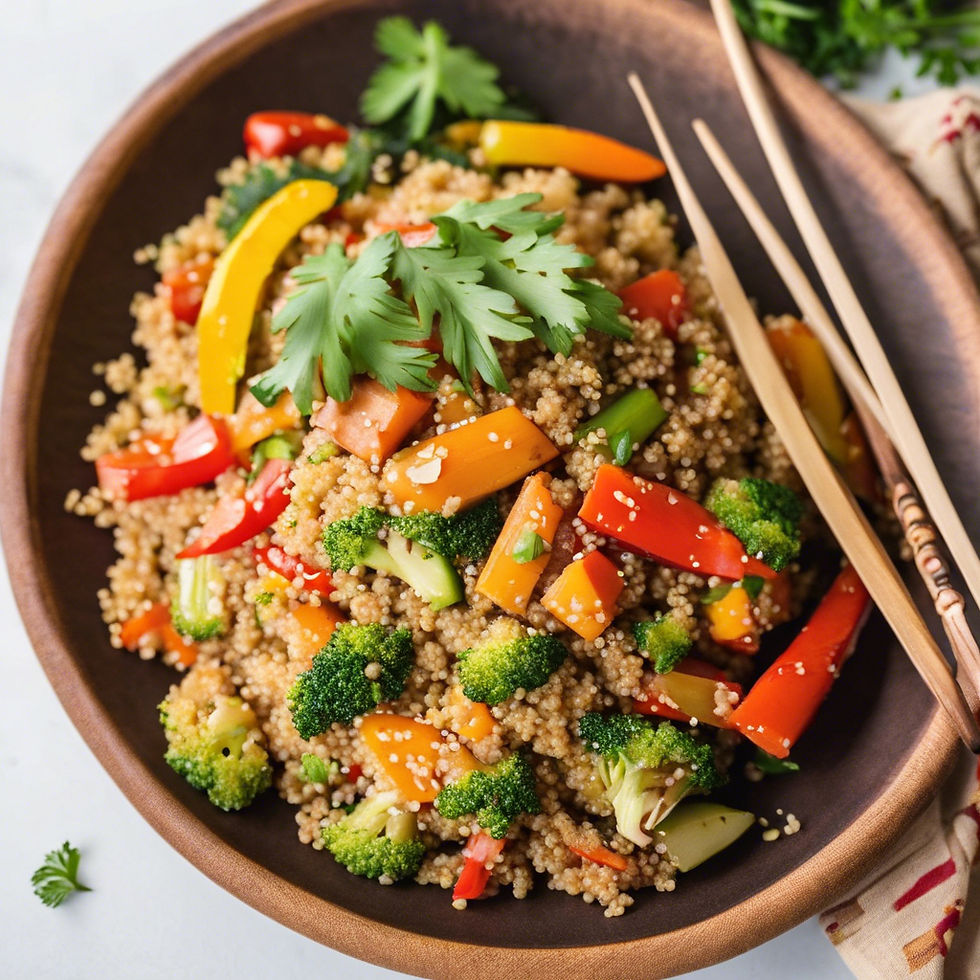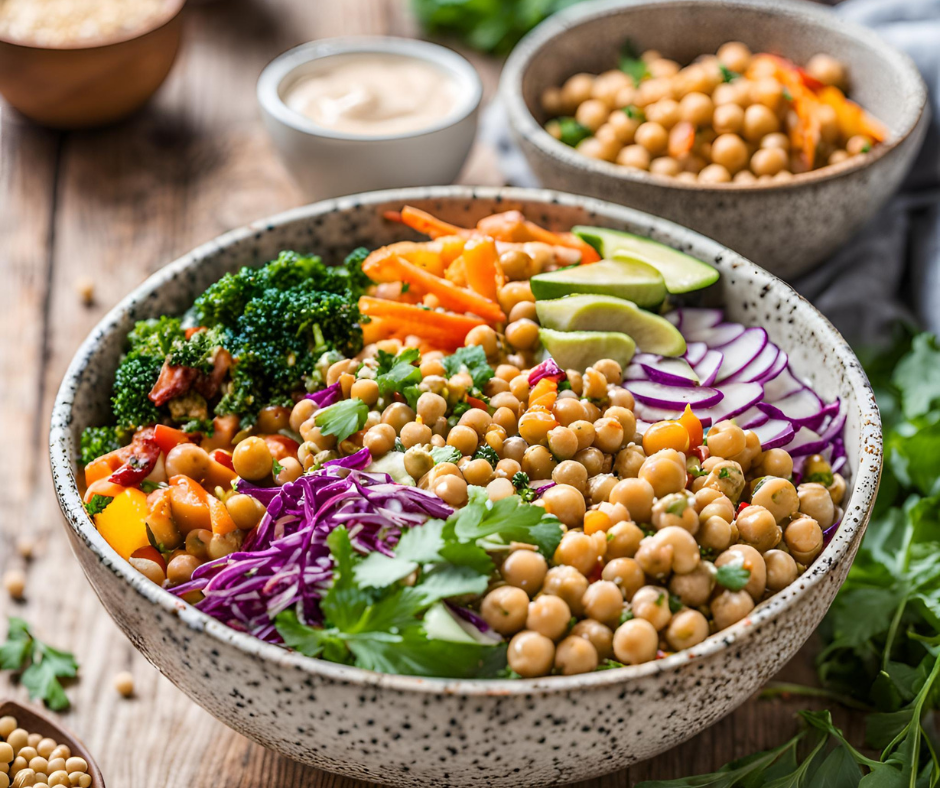5 Signs Your Gut Health May Be Suffering and How to Cultivate a Healthier Gut with Dairy-Free, Gluten-Free Tips and Recipes
- Kelli Cousineau
- Feb 3
- 4 min read
Maintaining a healthy gut is crucial for your overall well-being. It impacts everything from how well you digest food to your body's immune system. Surprisingly, many individuals ignore the signals that their gut health may be at risk. In this article, we'll identify five signs that your gut could be in trouble. We will also discuss why gut health is important and share practical dairy-free and gluten-free tips to improve it, along with delicious recipes that will support your journey to better gut health.
5 Signs Your Gut Health May Be Suffering
1. Digestive Issues
Persistent digestive problems may signal an unhealthy gut. Symptoms like bloating, gas, diarrhea, or constipation affect around 70 million people in the U.S. alone. An unbalanced gut microbiome can lead to these issues, indicating it’s time to take action.
2. Food Intolerances
An increase in food sensitivities can often be tied back to gut health. For instance, research indicates that 15-20% of people experience lactose intolerance, which can stem from a disrupted gut microbiome. When your gut struggles to digest certain foods, it can result in uncomfortable reactions, like stomach cramps or skin rashes.
3. Fatigue
Chronic fatigue might be a wake-up call that your gut isn’t absorbing nutrients efficiently. In fact, a study found that 29% of people with gut issues reported feeling fatigued often. If your gut struggles, it can leave you feeling drained, impacting both your energy levels and productivity.
4. Skin Irritations
Skin problems such as eczema, acne, or rashes might also be signs of gut trouble. Studies link gut health to skin conditions, indicating that about 40% of people with eczema have underlying gut issues. An inflamed gut may lead to inflammation that surfaces on the skin, affecting your overall appearance.
5. Frequent Illness
If you find yourself getting sick more often, your gut may be to blame. The gut contains a significant portion of the immune system—up to 70%. A compromised gut can lead to frequent colds, flu, or infections, suggesting a need for improvement in your gut health.
Why Gut Health Matters
The gut is often called the body's "second brain." It houses trillions of bacteria that play vital roles in digestion, metabolism, and your emotional well-being. A balanced gut microbiome promotes proper nutrient absorption, strengthens your immune system, and even aids in maintaining a healthy weight. Research shows that approximately 90% of the body's serotonin—the hormone impacting mood—is produced in the gut. Thus, a healthy gut is not solely about physical wellness; it greatly influences emotional balance.
Effective Tips for Gut Health Improvement
Improving gut health might seem challenging, yet simple dietary changes can create a significant positive impact. Here are actionable tips with a focus on dairy-free and gluten-free choices that can help boost your gut health:
Increase Fiber Intake
Boost your consumption of fiber-rich fruits, vegetables, nuts, and seeds. Aim for at least 25 grams of fiber a day from sources like apples, almonds, and lentils. Fiber supports healthy digestion and helps maintain a balanced gut microbiome, which is foundational for gut health.
Include Fermented Foods
Choose gluten-free and dairy-free fermented foods such as sauerkraut, kimchi, or coconut yogurt. These foods are rich in probiotics, beneficial bacteria that encourage healthy gut flora. For example, just 1 cup of kefir can contain up to 20 billion CFUs (colony-forming units) of probiotics, supporting gut health effectively.
Stay Hydrated
Ensure you are adequately hydrated by drinking plenty of water throughout the day. Proper hydration aids digestion and facilitates better nutrient absorption. Research suggests that adequate water intake can improve digestion by about 27%.
Limit Sugar and Processed Foods
High-sugar and heavily processed foods can disrupt gut balance and promote inflammation. Cutting down on these foods will help you focus on whole foods, drastically improving gut health. A study indicates that reducing added sugars can lower inflammation markers by up to 30% in just a few weeks.
Manage Stress
Managing stress effectively is crucial for gut health. Chronic stress can lead to gut dysfunction. Incorporate relaxation techniques such as yoga, deep breathing, or mindfulness exercises into your routine. Even setting aside 10-15 minutes for relaxation daily can make a difference in your stress levels and improve gut function.
Morning Drink for Gut Health: Turmeric Ginger Tea
Kickstart your morning with a warm, nutrient-packed beverage. This Turmeric Ginger Tea is not only refreshing but also supports gut health.
Ingredients
1 cup of water
1 teaspoon turmeric powder
1 teaspoon grated ginger
Juice of half a lemon
1 teaspoon honey (optional)
Instructions
Boil one cup of water in a small pot.
Add turmeric powder and grated ginger to the water.
Let it simmer for about 5 minutes.
Strain the tea into a cup. Add lemon juice and honey if desired.
Enjoy your revitalizing drink!
Nutritional Facts
Calories: 15
Carbohydrates: 4g
Fiber: 0g
Sugars: 4g
Vitamin C: 6% of the Daily Value (DV)

Dinner Recipe for Gut Health: Quinoa Stir-Fry
For a hearty dinner that delights your taste buds and supports gut health, try this Quinoa Stir-Fry.
Ingredients
1 cup quinoa (uncooked)
2 cups water
1 tablespoon olive oil
1 cup broccoli florets
1 red bell pepper, chopped
1 carrot, thinly sliced
1 cup snap peas
2 garlic cloves, minced
2 tablespoons tamari (gluten-free soy sauce)
1 tablespoon sesame seeds
Instructions
Rinse the quinoa under cold water and combine it with water in a pot. Bring it to a boil. Lower the heat, cover, and simmer for 15 minutes.
In a separate pan, heat olive oil over medium heat. Add garlic and sauté until fragrant.
Add broccoli, bell pepper, carrot, and snap peas. Stir-fry until the vegetables are tender, around 5-7 minutes.
Once the quinoa is cooked, fluff it with a fork and mix it with the vegetables.
Stir in tamari and top with sesame seeds.
Nutritional Facts
Calories: 290
Carbohydrates: 45g
Fiber: 6g
Protein: 10g
Fat: 8g

Emphasizing Gut Health
Recognizing the importance of your gut is increasingly vital in today’s health-focused society. Being aware of the signs of an unhealthy gut enables you to take proactive steps to improve it. By incorporating fiber-rich foods, beneficial fermented items, and delicious recipes, you can significantly enhance your gut health. Following a dairy-free and gluten-free diet not only alleviates discomfort but also paves the way for better overall wellness. Remember, your gut's health reflects your overall vitality—nurture it wisely!
.png)



Opmerkingen